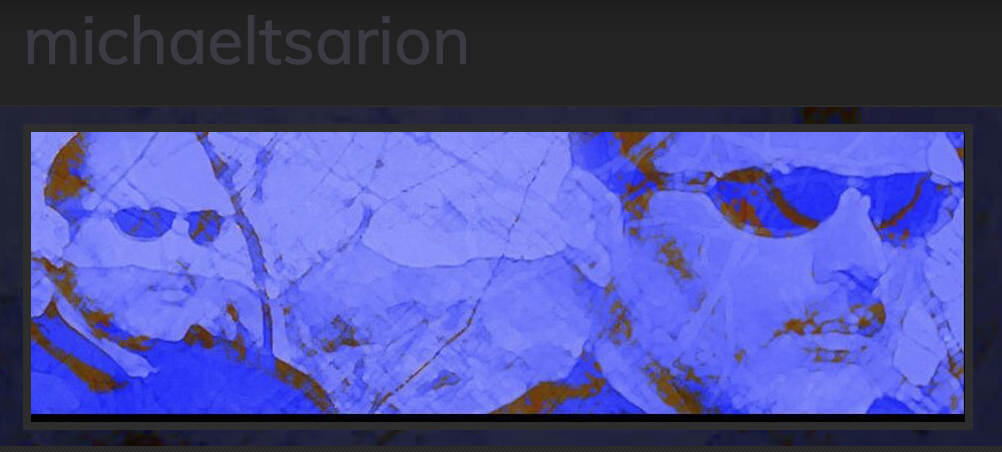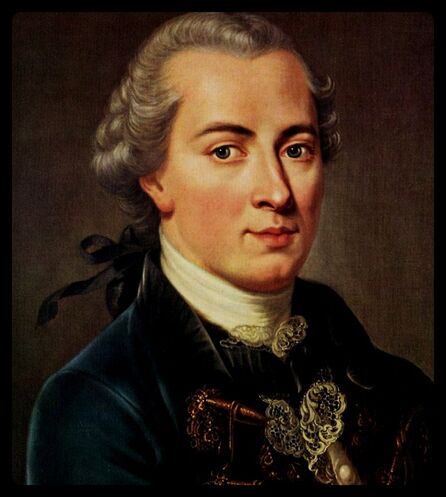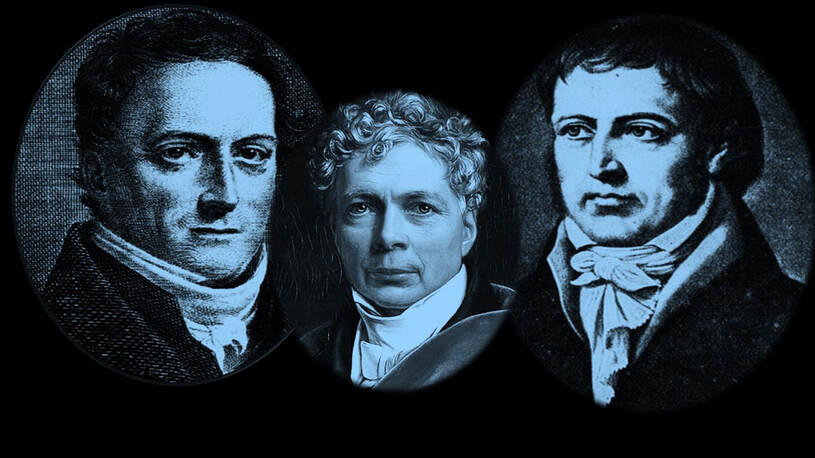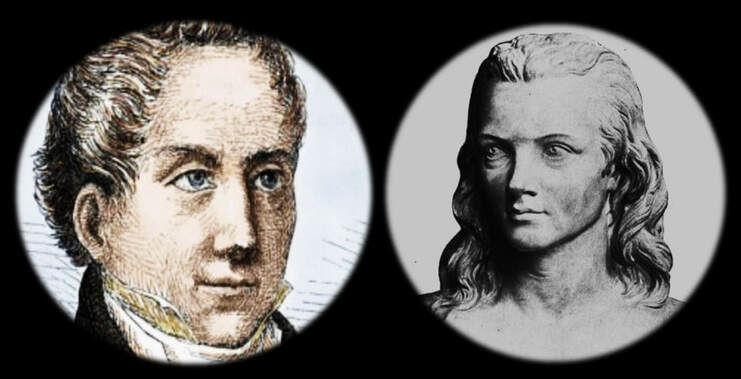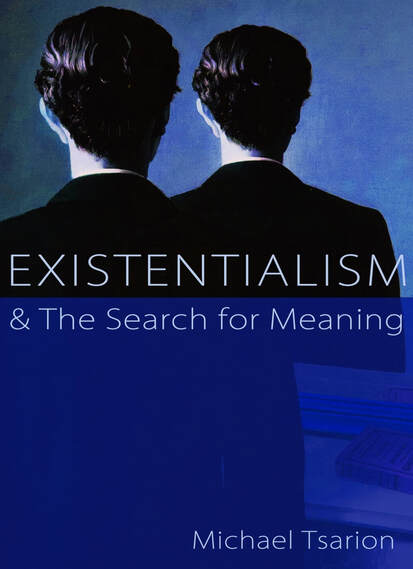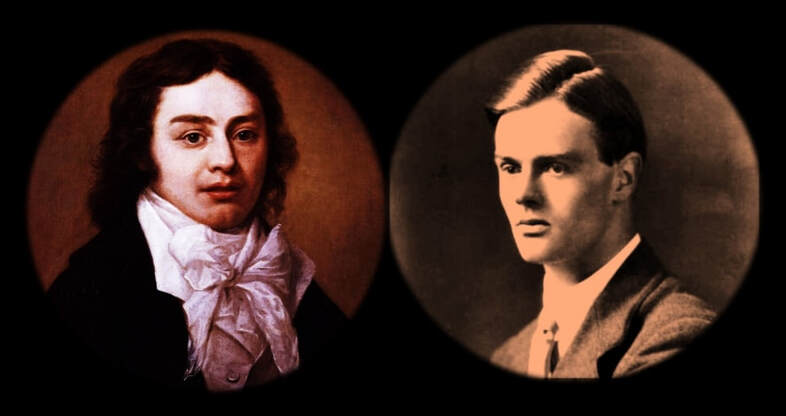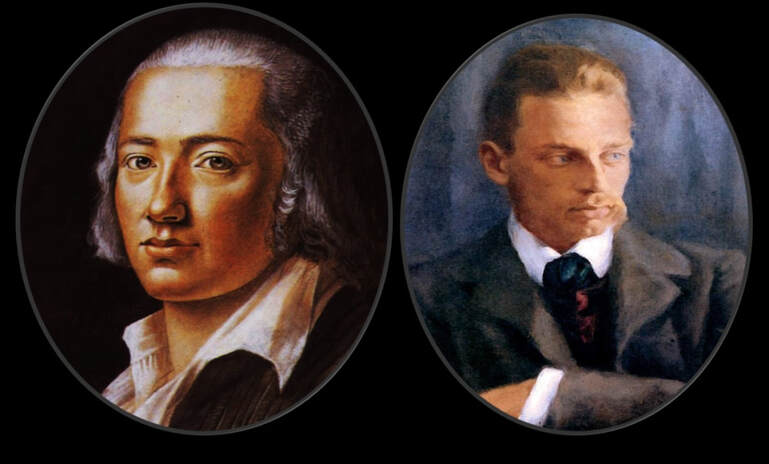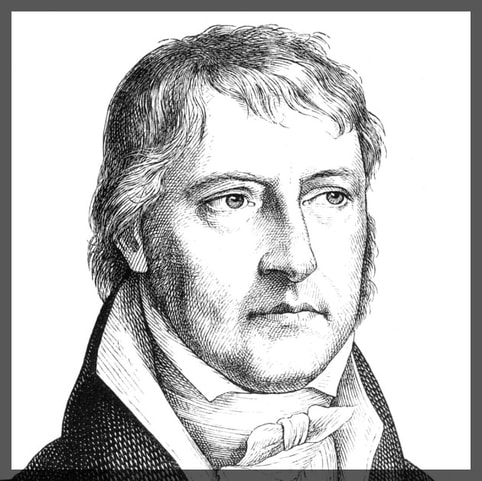THE CASE FOR IDEALISM
The truth is relative – Friedrich Schlegel
Idealism is based on the principle that the mind has a great bearing on how we experience reality. How do we get to speak about and describe reality, let alone experience it? We all agree that reality exists and that it’s not just a matter of words. But what is it really? And if our minds alter the reality we think we know, what is it like beyond the mind’s representation of it?
In the seventeenth century, Irish philosopher George Berkeley said that there is no such thing as matter or a material world. This is because what we call “matter” is nothing but an idea in our heads – hence idealism. It may be better expressed as idea-ism. Berekeley was ruthlessly mocked by one and all, particularly by hardline Materialists.
Now, after decades of exploration into the Quantum Universe, skeptics, physicalists and reductionists are forced to accept that the principles of Idealism are correct. Because it has been scientifically proven beyond all doubt that what we call matter (and reality) is indeed altered by he who observes it, materialism is rendered null and void for all time.
That is the major change in the zeitgeist of our times. Papers have gone flying and there’s a lot of bumbed folks out there licking their wounds.
Of course, the revival of Idealism has enormous ramifications for many areas of life. All sorts of cherished scientific paradigms – such as classical physics and neuroscience, etc – are undergoing major revision as I write. Reality is mind-dependent after all, like Berkeley, Blake, and many other sages of the past said, only to be ridiculed and professionally assassinated. All in the name of a lie.
Since it appears that we cannot penetrate into the mysteries of matter, and of creation, many are inclined to take refuge in skepticism. In fact, skepticism has been around since Plato’s age, maybe even before.
Later in history, skepticism seemed validated by the discoveries and statements of Immanuel Kant. He too believed that since ultimate reality is permanently screened and off-limits to human reason, what we call philosophy is not as unshakably founded and valid as we like to believe.
Immanuel Kant (1724-1804) was the first major thinker to scrutinize the limits of thought. Truth, he said, is really a subjective matter. Reality isn’t known as it is in itself, only as the mind shapes it. Since objective knowledge is a chimera, we are right to be skeptical about the role of philosophy. The only way out of skepticism is to have faith. This announcement was rejected by the German Idealists Johann Fichte, Friedrich Holderlin, Friedrich Schelling, Georg Hegel, and others. Even if the transcendent is elusive, it’s not because of the reasons put forth by Kant. Therefore, better explanations for the elusiveness of Spirit must be found. On no account, however, must philosophy be abandoned.
Although most of Kant’s statements were proven false, the world carried on as if nothing happened. Kant’s startling announcements were taken onboard and the insightful criticisms of his opponents, countering skepticism, were misrepresented and largely forgotten. It has had dreadful consequences for western civilization and has allowed all sorts of absurd movements and notions to thrive for far too long.
Shortly after Kant’s time, in Germany of the late eighteenth century, a major schism occurred between those affected and disaffected by the Kantian project.
The Romantics held that if the Absolute has hidden aspects – and if its nature can only be approximated – why think about it at all? In their minds questions of unshakable First Principles and a transcedent source of knowledge were absurdities. This was due to their reading of Kant.
Also, because Being precedes self-consciousness, the case for Being’s elusiveness is rendered a certainty. Therefore, it follows that since we cannot have direct and complete knowledge of Being, why indulge in philosophy at all? It leads only to nonsense, said the Romantics. Let’s direct attention and effort to purely human affairs and dump the metaphysics.
This edict was proposed, of course, in the name of freedom.
Fichte, Holderlin, Schelling and Hegel vehemently disagreed and actively attempted to save western philosophy from collapsing into insignificance at the hands of skeptics and Romantics.
Johann Fichte (`1762-1814), Friedrich Schelling (1775-1854) and Georg Hegel (1770-1831). Fichte brilliantly pointed out the flaws in Kant’s elaborate theory of mind. A top professor, he was scurrilously accused of atheism and ousted. He lost everything. His dismissal emboldened the Romantics who had been his students. Hegel and Schelling, moved by his extraordinary ideas, took over and developed his work. Hegel adapted Fichte’s theory of Dialectics. The infamous terms Thesis, Antithesis and Synthesis were coined by Fichte not Hegel. Fichte believed and taught that all philosophy was based on fundamental First Principles, set down by the divine or “Unconditioned.” Discovering what it is to be a Self entails first discovering what is not the Self. His was, therefore, a philosophy of “negation.” Philosophy is grounded in this “I versus Not-I” dynamic. There is, therefore, an “I” in search of knowledge. Self-consciousness, then, is the basis of certainty, and point from which one reaches out to the world and the transcendent. Whatever the Self makes manifest during its interaction with the Not-I is the domain of and reason for philosophy.
Although the Romantics were seen as little more than revolutionaries and libertines, there were a few areas of agreement between the two contingents. Both agreed that history is an important factor. Indeed, it was at this time that history was first introduced as philosophically important.
For the Romantics, history was important, but it must not be absolutized or necessarily connected with any transcendent principle. It is not a manifestation of the Absolute, and is not, therefore, a central pillar of philosophy upon which certain knowledge stands. History merely records human activity and is not to be equated with Spirit (or Geist).
Friedrich Schlegel (1772-1829) and Novalis (1772-1801, real name Friedrich von Hardenberg), were the chief proponents of the Romantic school started at Jena university. Inspired by Friedrich Heinrich Jacobi, they founded journals in which they challenged the tenets of Idealism. Kant’s skepticism was their launching point. Given that certain knowledge about reality is unavailable, philosophy is rendered a meaningless discipline and must be rejected. There is no Absolute, no transcendent principle and no unrepresented cause of the cosmos. God is merely a figment of the mind, and a matter for art and literature. If we need a motivating ideal, let it be freedom. Let us bow before Liberty, Fraternity and Equality!
Hegel disagreed. History is very definitely to be equated with Geist, and since this word also connotes “mind,” we see the deep connections between the movement of the divine spirit and human reason. If they are not, says Hegel, one and the same, they are very closely related, and not just linguistically. It follows that by studying one, we study and uncover truths about the other. This is the First Principle that grounds and makes sense of philosophy. We philosophize because we can, because Spirit has endowed us with the capacity to do so.
However, despite the mind’s present abilities, the fact remains that until we attain full Self-consciousness, we will not find ourselves capable of understanding Spirit. For Hegel, and the other Idealists, it is, therefore, essential that the lineaments of Self-consciousness are examined and explained, along with speculations of a metaphysical nature. Any and all questions about the nature and purpose of Spirit are inseparable from inquieries into the mind posing said questions. Philosophy is inseparable from psychology.
Our ability to self-reflexively observe our minds with the mind, is no insignificant feat or accidental biproduct of physical evolution. It is an unexplained mystery and reason enough for philosophy. Philosophy’s foremost task is to explain how and why we get from unconsciousness to consciousness to self-consciousness states of being. What explains how we slowly passed through these three main stages, and numerous substages between, to successfully arrive where we are?
Along with this extraordinary capacity for self-awareness, we can, via reason, access the mind of Spirit, as it were, or, better said, we deduce the identity and purpose of Spirit. What we call history is the history of this unfolding process whereby man acquaints himself with the nature of the divine. How is it, Hegel demanded, that this cannot be a legitimate first principle? How can we not ground thought in this principle? Those who deny it are insane and dangerous. Do they believe we can go through life without a modicum of self-consciousness? Do they believe we are identical, in this regard, to animals?
That we are rational beings stands, said the Idealists, as proof of the existence and immanence of Spirit. Reason is, therefore, to be elevated to a first principle upon which all philosophizing and knowledge rest. This precept constitutes the heart of western culture and Western Mystical Tradition.
For the Idealists, reason is the bridge between the human and the divine. They denied the skepticism of Kant, and set out to find better ways to prove the connection.
For the Romantics and their progeny, reason evolved by way of a series of accidents and mutations. Spirit is just an empty term, a figment of language with no inherent substance or meaning. We waste precious time and resources taking it seriously. There are so many important social matters to attend to. Should we wish to entertain heady thoughts and ruminations, let us focus on art, music. drama, criticism and literary pursuits. If I disagree over a poem, I can express my points in journals, magazines, public debates and speeches. This is what practical reason is for, not abstraction and metaphysics.
Tragically, the approach and doctrine of the Romantics did not fade away. It continued to be purveyed by bohemians, socialists, revolutionaries, anarchists and artists right up to the present day.
The Romantic doctrine spread far and wide, influencing Feuerbach, Marx, Engels, and almost every thinker and writer of modern and Postmodern periods. It certainly influenced Nietzsche and Schopenhauer, and in later times its influence can be detected in thinkers such as Berlin, Russell, Moore, Wittgenstein, Popper, Foucault, Derrida, Rorty and others of their kind.
The few who championed Idealism were cast aside and forgotten. Hegel has been shamelessly dragged through the mud. There has been a long-standing campaign to misrepresent his profound corpus:
…an unparalleled scribbler of nonsense – Arthur Schopenhauer (on Hegel)
If I were to say that the so-called philosophy of this fellow Hegel is a colossal piece of mystification which will yet provide posterity with an inexhaustible theme for laughter at our times, that it is a pseudo-philosophy paralyzing all mental powers, stifling all real thinking, and, by the most outrageous misuse of language, putting in its place the hollowest, most senseless, thoughtless, and, as is confirmed by its success, most stupefying verbiage, I should be quite right – ibid
…what was senseless and without meaning at once took refuge in obscure exposition and language. Fichte was the first to grasp and make vigorous use of this privilege; Schelling at least equalled him in this, and a host of hungry scribblers without intellect or honesty soon surpassed them both. But the greatest effrontery in serving up sheer nonsense, in scrabbling together senseless and maddening webs of words, such as had previously been heard only in madhouses, finally appeared in Hegel. It became the instrument of the most ponderous and general mystification that has ever existed, with a result that will seem incredible to posterity, and be a lasting monument of German stupidity – ibid
Bertrand Russell was a tad more generous in his scathing diatribes against Hegel and German Idealism. Neverthless, he had as much contempt for Idealism as his predecessor.
I deal with this subject in Part Two of my forthcoming book, showing how the ideas of Martin Heidegger hearken back to those of Holderlin, Rilke and Schelling.
In the early twentieth century, Positivists overthrew the school of British Idealism. Men such as Karl Popper, Bertrand Russell, J. L. Austin, A. J. Ayer and G. E. Moore spent their time debunking Idealism. They carried on where the German Romantics left off. There can be no doubt that they attempted to dismantle the entire Western tradition, and undermine the core precepts of German mysticism and Idealism. Cleverly replacing the ideas of the Idealists with more mundane ones, pertaining to the value of art, drama, literature, liberalism, revolution and self-expression had universal appeal. Such ideas were accepted to bohemians, malcontents and “artists” far and wide.
This accounts for entire genres of art, such as Impressionism, Expressionism, Abstractionism, Dadaism, Surrealism and Modernism, etc. Artists, writers and film-makers, such as Bertolt Brecht, Walter Benjamin, James Joyce, Samuel Beckett, Harold Pinter, Max Ernst, Andre Breton, Jean Luc Godard, F. T. Martinelli, Salvador Dali, Henri Matisse, Pablo Picasso, Paul Klee, Wassily Kandinsky, Constantine Brancusi, Le Corbusier, Andy Warhol, Jackson Pollock, Damien Hirst and many others, to various degrees encapsulated the principles of the Romantics in their works.
The transgressive ideas of the Romantics culminated in Germany in the so-called “Weimar Republic,” the antetype of later debauched hedonistic communities and societies. Without the excesses of Weimar, there could be no Amsterdam, Reeperbahn, Christiana, Soho or Greenwich Village; no Hippy Movement, Berkeley, Woodstock, Burning Man or LGBTQ fiasco.
There’d be no drag-queens on parade, no cross-dressing extravaganzas, no policitcal-correctness, no entitled half-wits, drug-culture or drug-epidemics laying waste to the West.
…We cannot be calmed until the whole of Europe is in flames – Jacque Pierre Brissot (A leading French revolutionary)
Where did it all start…where did it come from?
More to the point, there’d be no Communism, Cultural-Marxism, Pluralism, Multiculturalism, Feminism or Relativism. Not outside a lunatic asylum that is.
We think it’s all new, something of our times. Actually, most of the sick aspects of western culture seen today derive from Germany of the 1790s. It was Germany’s and Europe’s fin de siecle, with characteristic upheavals. Although the two great wars hadn’t happened, Europe had experienced the Industrial Revolution, the French Reign of Terror, the Franco-Prussian War, the rise of Napoleon and French invasion of Europe. Republicans challenged monarchies and many an old order was brought to the brink.
When Napoleon crowned himself emperor, dismay swept Europe. Liberal thinkers everywhere, and every champion of Liberty, Fraternity and Equality was plunged into despair. Hopes for a better tomorrow were dashed, and many disgruntled types like Shelley, Bakunin, Proudhon, Kropotkin, Trotsky and Marx, etc, were even more determined to smash the old order.
It was these times that witnessed the rise of extremist socialism and philosophical relativism. There’s nothing new under the sun. Today’s media “talking-heads” rarely if ever speak of this. The average Millennial has no clue where it all began, or where his vagrant ideas come from.
The German Romantics were akin to today’s Millennials. They were the young “hipsters” of their age, of the fin de siecle. They were philosophical lightweights who envied the great thinkers of their time. As far as they were concerned, ideas were rotten just becaue they were old. They were to be trashed just because they were taught by goat-bearded fuddy-duddies in universities.
These young student upstarts were offended by the elusiveness of Spirit. If Geist cannot be delivered up on a silver plate, it’s not worth our time…Let’s get on with self-expression, social reform and having fun. The dionysian horde, opium-pipes in hand, stormed the streets and colleges, preaching radicalism and anarchy. Certainty is what we make it…Let’s not wait for a God to rescue us.
In their drug-drenched ardor, the Romantics committed themselves to utopian ideals. Today, the technocrat executes their mandate to build a “better” world. However, because their premises are absurd, they’ve delivered nothing less than a dystopia.
But where is the push-back? Who speaks against it? Why are the warnings of the few enemies of “progress” unable to get a decent hearing?
Taking his cue from his mentor Samuel Taylor Coleridge, English philosopher and linguist Owen Barfield sought to resolve the breach between Romantics and Idealists. He acknowledged the good in both camps, and also the flaws.
Coleridge, one of England’s foremost poets, had traveled to Germany to get as close as possible to the men involved in arguments and critiques about Kant’s skeptical philosophy. He listened to both contingents and made up his own mind about Kant’s extraodinary proposals about consciousness and reality. They were wrong, thought Coleridge. He aligned himself instead with the philosophy of nature as espoused by Friedrich Schelling. Indeed, Coleridge was soon given the title “the English Schelling.”
English poet Samuel Taylor Coleridge (1772-1834) and philosopher Owen Barfield (1898-1997). Barfield was a close colleague of C. S. Lewis and member of the Inklings. Coleridge was the chief British proponent of the philosophical ideas of the great Idealist Friedrich Schelling. Barfield’s reputation was occluded by the worldwide popularity of his colleagues C. S. Lewis and J. R. R. Tolkien. There can be no doubt, however, that Barfield was by far the greater thinker. (Here for more…)
In his youth, Schelling was a fellow-traveler of the Romantics, and had a lot of time for some of their ideas, particularly those celebrating the Classical Period and Middle Ages. However, in the end he could not stomach their sneering dismissal of the relevance of philosophy. Although poetry and politics were not unimportant, there was no way they were to be exalted above philosophy. That was tantamount to extreme libertinism and amounted to the undermining of the entire Western tradition. Schelling tried to bring the Romantics to their senses, but it proved useless. He sided with his unshakable friend Friedrich Holderlin, and condemned the high-sounding Romantic doctrine in writing and speeches.
Poets Friedrich Holderlin (1770-1843) and Rainer Maria Rilke (1875-1926). Although Holderlin was affiliated with both contingents, he was a Classicist, taking his cues from the ancient Greeks. A student of Fichte, he was a friend of Schelling and Hegel. They looked to him as a mentor. He was Germany’s most respected poet, and was described by Martin Heidegger as “the most German of Germans.”
Coleridge and Barfield took a similar view. Despite the appeal of some Romantic ideas – those which inspired Shelley and other English poets – Romanticism’s project was ultimately wrongheaded. It could only lead to cultural chaos.
Barfield, however, hesitated before subscribing to the tenets of Absolute Idealism espoused by Fichte and Hegel. Nature was definitely a first principle, and was to be taken as the signature of the Absolute. History was also undoubtedly the process by which Geist or Spirit moves toward full Self-realization. And there can be no doubt that reason is a special endowment to man, that it indicates the benevolence of the divine.
However, despite the veracity of these Idealist principles, there was still the problem of radical skepticism to be addressed. If any part of Being or Spirit lies in darkness – if some part of the divine remains elusive – then it follows that – as Kant first enunciated – reason is not enough. This in turn means that the search for metaphysical knowledge is bound to be limited. Maybe, then, the Romantics and libertines had a point. Why bother philosophizing at all?
A decision, one way or the other, seemed impossible. Kant offerred faith and belief as the way out. If I have faith in something, I’m no longer in need of proofs for or against. I save myself from the never-ending round of heady intellectual critiques.
Barfield focused on this problem of Being’s elusiveness. He didn’t object to it. Like Holderlin and Rilke, he said that it should be revered and embraced as the foremost foundational principle of thought and philosophy. Barfield wholeheartedly agreed. Thus, he was more of an Idealist than a Romantic.
We are to be all right with Being’s elusiveness. The poet needs to change his disposition in terms of it, and so does the philosopher. Indeed, this is exactly the position taken by Barfield’s German contemporary Martin Heidegger. There are interesting parallels between the ideas of the two men. Both revered Holderlin and Schelling, and for good reason.
Like Heidegger, Barfield also implicitly remarked on the antipathy caused in humans by the elusiveness of Being.
Knowledge is based on understanding (standing-under), which implies that there is something to be understood. Being precedes self-consciousness and cannot, therefore, be understood in a conventional sense. Being “understands” all things, including human consciousness.
In language, Being appears in the form of the ubiquitous “is” – “It is raining outside,” “the tree is in the garden,” “the meal is ready,” “tomorrow is Saturday,” “it is a good feeling,” etc. Being is there at the base of everything, especially when we aren’t aware of it. As far as Fichte was concerned, since human “beings” ask the question of Being, and represent it in their language and speech (as “is”), Being and Self are intimately connected. They may even be one and the same.
When I ask questions about the sun and moon, or inquire into the nature of a river, cloud or tulip, it is not the same as asking about Being. When I ask about objects and entities in the world around me, I can come upon my answers without too much trouble. Moreover, my discoveries about tulips isn’t relevant to my status as a being. If, on the other hand, I inquire into the mystery of Being, what I discover has the greatest impact on me as a being. Conversely, questions about myself are simultaneously relevant to the nature of Being. For this reason Fichte saw the Self as inseparable from Being. The connection and relationship between the two is clearly a first principle of philosophy.
Questions about Being are born from wonder. But if Being is so insignificant and inherently meaningless, why would it ever become an object of thought and wonder? Why would our language be replete with it (in the form of “is”)? To reduce the concept of Being is to reduced, Selfhood to nothingness.
To wonder at the mystery of Being is to be able to wonder, which in turn means Being is a matter for us. Wonder is a response to it. Can this occur unless we, on some level, recognize Being’s presence however elusive it is? Being and wonder are, therefore, one and the same, just as Being and Self are one and the same. Take Being out of the equation, and we are left not with philosophy, but simple narcissism, perhaps not enough of that to even ask “who am I?”
Remember that the object of all knowledge is Self-revelation. Our questions about the external world of objects and entities are for the purpose of establishing the “Not-I,” all in the service of a better definition of “I.”
Strangely, there is also, as said, a feeling of animosity toward the mystery of Being. Instead of being an object of wonder, the hiddenness of Being offends us. So much so that almost everything we see in our world derives from it. Instead of reverence, we respond with hubris and rage to Mystery. This animosity toward nature and Being accounts for the rise of science, technology and religion. It’s the reason techne has superceded physis.
Science, technology and religion cannot be understood without an understandng of the nonconscious animosity toward the Unconditioned. Barfield also thought that evidence of this odd congenital hostility was to be found in our language.
Human antipathy toward nature’s mystery – the mystery of mystery – gave rise to Romanticism and relativism. Almost every writer on Romanticism states that it was simply a branch of Idealism, and that the ideas of the two schools at Jena had a lot in common. This is simply not so.
Schelling and Hegel were deeply involved in the debates of the time. Their teacher Johann Fichte had come under ferocious attack from his young histionic pupils who founded the Romantic movement. They too were hotly debated and mocked. Indeed, the lampooning of Hegel never abated. It continues to this day, while detractors ransack his great work, scavenging parts they redact and use to further their own worthless reputations.
Hegel fought valiantly against Western civilization’s destroyers. His work is to be understood in this light. The Phenomenology of Spirit is a manual of Idealism, yes. It is also a defence against the onslaught of the Romantics. For this reason alone it must be treasured for all time.
Georg Hegel is the most misinterpreted and misrepresented philosopher of all time. His detractors, men such as Bertrand Russell, rained down diatribes against his terminology and style, but carefully avoided dealing with his philosophical insights. All his famous detractors – including Kierkegaard, Nietzsche, Schopenhauer and Marx, etc – appropriated his key ideas and liberally adapted them without citation. His book The Phenomenology of Spirit was written to counter the arguments of Romantics and skeptics. Deeply concerned about the threats to Western culture, he heroically struggled to reclaim philosophy and found it on adamantine principles. Among his profound insights was the role of history in the unfolding of Self-consciousness. Hegel succumbed to a cholera outbreak, and asked to be buried beside Fichte. (Here for more…)
In youth he was much attracted to mysticism, and his later views may be regarded, to some extent, as an intellectualizing of what first appeared to him as mystical insight – Bertrand Russell (on Hegel)
Fichte, Holderlin, Schelling and Hegel refused to follow the dortrines of Romanticism. If the Absolute is inaccessible, and if our knowledge of it is inadequate and faulty, don’t blame the Absolute and remove it from its rightful pedestal. Blame humanity. It is we who haven’t got it right. It is we whose metaphysical speculations are wanting.
Hegel’s attitude was optimistic and positive. Don’t scrap what great men of the past said about reality. Don’t abjure and replace philosophy. Accept its limitations and start again.
Science concedes that it has been forced to do this many times, as paradigms fall and get abandoned. So let us do likewise and let the phoenix rise from the ashes of the old. Let what is past nourish the new. Any other approach is absurd and leads only to irreverence, apathy, hedonism and despoilation.
No, said Hegel, let’s work to establish new foundations for philosophy. To use his own nomenclature – let us negate the negation, and build a new thesis. Long live the Dialectic!
. .
![]()

